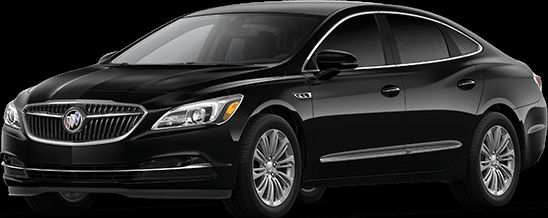When considering the purchase of a pre-owned vehicle, two vital resources can provide peace of mind and vital information about the car's history and condition: VIN verification and vehicle history reports. While both serve as essential tools for potential car buyers, they offer different insights and serve distinct purposes. This blog will explore the nuances between VIN verification and vehicle history reports, outlining how each can aid in making an informed decision when navigating the used car market. Whether you're a first-time buyer or a seasoned auto enthusiast, understanding these differences is crucial in ensuring your next vehicle is both safe and a worthwhile investment.

VIN Verification: Purpose and Process Explained
VIN verification is a process designed to confirm the identity of a vehicle. This procedure checks the vehicle identification number (VIN) against official records to ensure that the vehicle's details match those on file. The primary purpose of vehicle identification number verification is to detect potential fraud or theft, providing buyers with peace of mind that the vehicle they're purchasing is legitimate. The VIN is a unique 17-digit code assigned to each vehicle by the manufacturer and serves as its fingerprint. It contains information such as the make, model, year, and production plant of the car. By verifying this number, you can confirm if a vehicle has been reported stolen, or salvaged, or if the title is branded. Additionally, VIN verification can also help detect any discrepancies in the vehicle's history, such as inaccurate mileage readings or potential odometer rollback.
Vehicle History Reports: Comprehensive Insights into a Vehicle's Past
Vehicle history reports go beyond the basic verification provided by VIN checks, offering a more detailed view of a car's history. These reports compile data from a variety of sources, including insurance companies, repair shops, police records, and more, to provide a comprehensive overview of the vehicle's past. A vehicle history report can reveal important information such as past accidents, repair history, previous owners, and whether the car has been involved in any natural disasters that might affect its condition.
It can also confirm the mileage accuracy and identify if the vehicle has a clean, salvaged, or rebuilt title. This depth of information is invaluable for buyers, as it helps in assessing the potential risks and longevity of the vehicle, ensuring that they're making a well-informed purchase. Essentially, while VIN verification ensures the car is what it claims to be, vehicle history reports illuminate the car's life story, offering transparency and confidence in the buying process.
Data Sources for Vehicle History Reports
Vehicle history reports aggregate information from a plethora of sources to provide a detailed backstory of a vehicle's life. Key data sources include:
- State DMVs (Department of Motor Vehicles): These government bodies maintain records of vehicle registrations, title transfers, and detailed ownership history.
- Insurance Companies: They contribute data on claims related to accidents, thefts, and other damages, shedding light on possible past vehicle mishaps.
- Repair and Service Centers: These entities report maintenance records, including routine services and major repairs, offering insights into the vehicle’s upkeep and any significant mechanical issues.
- Law Enforcement Agencies: They provide records of stolen vehicles and those involved in criminal activities, ensuring a vehicle's clean legal history.
- Flood and Salvage Yards: Information from these sources is crucial for identifying if a vehicle has been in floods or declared a total loss, which directly impacts its value and safety.
These diverse sources collectively ensure that vehicle history reports offer a transparent, comprehensive view of a car's past, aiding buyers in making informed decisions.

When to Use VIN Verification
VIN verification is particularly useful in the initial stages of purchasing a pre-owned vehicle. Before investing time and resources into more comprehensive checks, a VIN verification offers a first layer of assurance regarding the vehicle's legitimacy. Effective scenarios for VIN verification include:
- Preliminary Checks: When you first encounter a potential vehicle purchase, conducting a VIN verification can immediately alert you to potential red flags, such as theft or a salvage title.
- Private Sales: In transactions without a dealership’s involvement, where less formal paperwork might be present, a VIN verification acts as a crucial step in validating the vehicle’s status.
- Cross-State Purchases: If you're considering a vehicle from another state, VIN verification helps ensure that the car's documentation is in order, reflecting accurately across different jurisdictions.
- Rare or Collectible Cars: For vehicles where provenance and originality are paramount, verifying the VIN can confirm the vehicle’s identity and heritage, adding to its value and authenticity.
It's also a good practice to perform VIN verification as a precursor to obtaining a comprehensive vehicle history report. This sequential approach can save time and resources, filtering out vehicles with evident issues early in the buyer's decision-making process.
In conclusion, while both VIN verification and vehicle history reports offer insights into a car’s past, they serve different purposes. VIN verification confirms the vehicle's identity and assists in detecting potential fraud, while vehicle history reports provide a more detailed view of the car's history and condition. By combining these two resources, buyers can ensure that their next pre-owned vehicle is legitimate, transparent, and worth investing in. So, whether you're buying your first car or adding to your collection, conducting thorough VIN verification and obtaining a comprehensive vehicle history report are essential steps when making an informed purchase decision.




